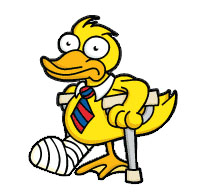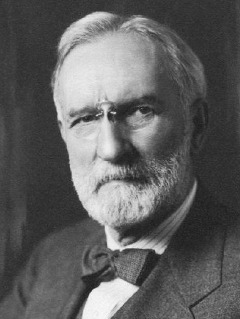Related Topics
Improving Our Political System
Republics and their Flaws
Revisionist Themes
In taking a comprehensive view of a city, an author sometimes makes observations which differ from the common view. Usually with special pride, sometimes a little sullen.
Favorites - II
More favorites. Under construction.
Right Angle Club 2012
This ends the ninetieth year for the club operating under the name of the Right Angle Club of Philadelphia. Before that, and for an unknown period, it was known as the Philadelphia Chapter of the Exchange Club.
Unwritten Constitutional Modification
It is so difficult to amend the Constitution, we mostly don't do it. Our system is to have the Supreme Court migrate slowly through several small adjustments, watching the country respond. Occasionally we have imported new principles, sometimes not entirely wise ones, adopted without the same seasoning.
Void for Vagueness

|
| Question Mark |
BECAUSE otherwise, everyone would plead ignorance, ignorance of the law has been dismissed as a defense for thousands of years. What, then, is the situation when the statute itself is accused? Here, a group of citizens accuses the government of enacting vague laws, conceivably with the malicious intent to give government officers a free hand. Only the U.S. Supreme Court may decide Constitutional issues, and nine Justices are certainly inadequate to cope with a huge vagueness project. The Court must at least define a method for coping with imprecision. What is to be done with this?
 Is it really any longer true that ignorance of the law is no excuse? 
|
This novel proposition is a recent one, mostly because the volume of laws has steadily grown since 1787, when we began the Republic without any statutes at all, to the present gargantuan size of the Federal, State and Local Codes requiring hundreds of feet of shelf space in a library. No human brain can contain all that information at once, not even to mention the interpretive Regulations which grow by hundreds of thousands of pages each year. The limits of practical governance by traditional methods have passed the point where ignorance of the law is a theory, it is an absolute certainty for every citizen in most situations. Is it thus really any longer true that ignorance of the law is no excuse? Perhaps modern computer search capability has advanced to the point where it can conquer this problem for judges in an appellate situation, but woe unto the financier or automobile driver who professes ignorance of the state of judicial dispute resting in the system. Sometime relatively soon, some legal genius must figure out a sensible, workable, way to reconsider the rule that ignorance is no excuse when plainly anything other than ignorance is a laughable pretense.
But this muddle is only a background for a new twist to the same issue. The synthetic process has now created a growing apprehension that duly elected officials have passed laws which are deliberately vague, forcing the country to surrender decisions to a tyrannical process. Leave motive and intent out of the discussion; a tyrant is being created whether a tyrant seeks the crown or not. Just review recent history.

|
| Lame Duck |
We now grow accustomed to seeing proposed legislation thousands of pages long, appearing on the desks of elected congressmen who have been given a day or two, or sometimes less than a day, to approve them. The authors of this proposed legislation are often quite unidentifiable, and might sometimes not even be officials of the government. For a while, there was some talk of appointing "Czars" for certain areas of activity, but this has apparently provoked too much Congressional resistance. These multi-thousand page bills appear out of nowhere in particular, nominally authorized by the Speaker, the Committee Chairman, or some other official of Congress whose freedom of action is actually tightly controlled by arcane but irresistible partisan politics. A legislative body pretending that every member is the equal of every other, is in fact ruled with an iron hand.
Elected representatives of the people, charged with writing our laws, who even happen to belong to the majority political party, are powerless to refuse to adopt the legislation they have not read, and the minority is even more dismissively ignored. Confounding even careful reading of small sections of these bills, they are vague, potentially intentionally so. There is scant opportunity afforded legislators to question the authors of these legislative piles, not even the opportunity to have them reveal their names. Subscribe to this mystery package, or suffer unspoken political punishments. We are told assurances are privately given there will be an opportunity to correct errors when regulations are written by the Executive branch. The Legislative branch effectively removed itself from the expenditure of a trillion dollars for a medical reform that no one could lucidly explain, affecting a sixth of the gross domestic product. Within a month, this "reform" was followed by a highly similar process directed at the financial system of the nation, which likewise bears almost no resemblance to the problems it claims prompted the action. Small wonder the countryside is dotted with Tea Parties, and small wonder they are confused by what they want. Chief among their objectives is a demand to return to an understandable system, controlled by the legislative branch, not the executive one.
Whether the applicable term is "vagueness" or whether an underlying motive is to be alleged by calling it "deliberate ambiguity", a former Justice of the U.S. Supreme Court once supplied an adequate slogan for these legal barricades. Justice George Sutherland, who sat on the court from 1922 to 1938, constructed the legal standard for the unconstitutionality of criminal cases called Void for Vagueness . It seems a sufficiently evocative slogan for fall election campaigns, and it might even serve as a legal claim in a Supreme Court test of the matter.

|
Meanwhile, we have wars to fight, and the deepest recession in eighty years, plus whatever events national or international news may force us to contend with. A monumental Supreme Court test seems an almost welcome alternative. To make it possible, the Court will have to resolve the difficulty that this issue is neither criminal nor civil in the usual sense, and there is no third alternative. Furthermore, there is the picky-picky quibble that the doctrine of "void for vagueness" has only previously been used in criminal cases. We will have to endure the Republican resurrection of George Sutherland as a former American Bar President, whose elevation to the Supreme Court was so anticipated by everyone that he was unanimously confirmed, without hearings, the day he was nominated.
The fact is, popping the bubble of "void for vagueness" in this particular political tap dance is only an early warning that the nation is already inundated in a sea of bewildering rules. To the point where ignorance of the law must be acknowledged to be the common fate of all citizens. The law must soon address the matter, uncharacteristically remembering that the first step in resolving any true crisis is to decide which rule must be broken.
Originally published: Friday, July 02, 2010; most-recently modified: Monday, July 22, 2019